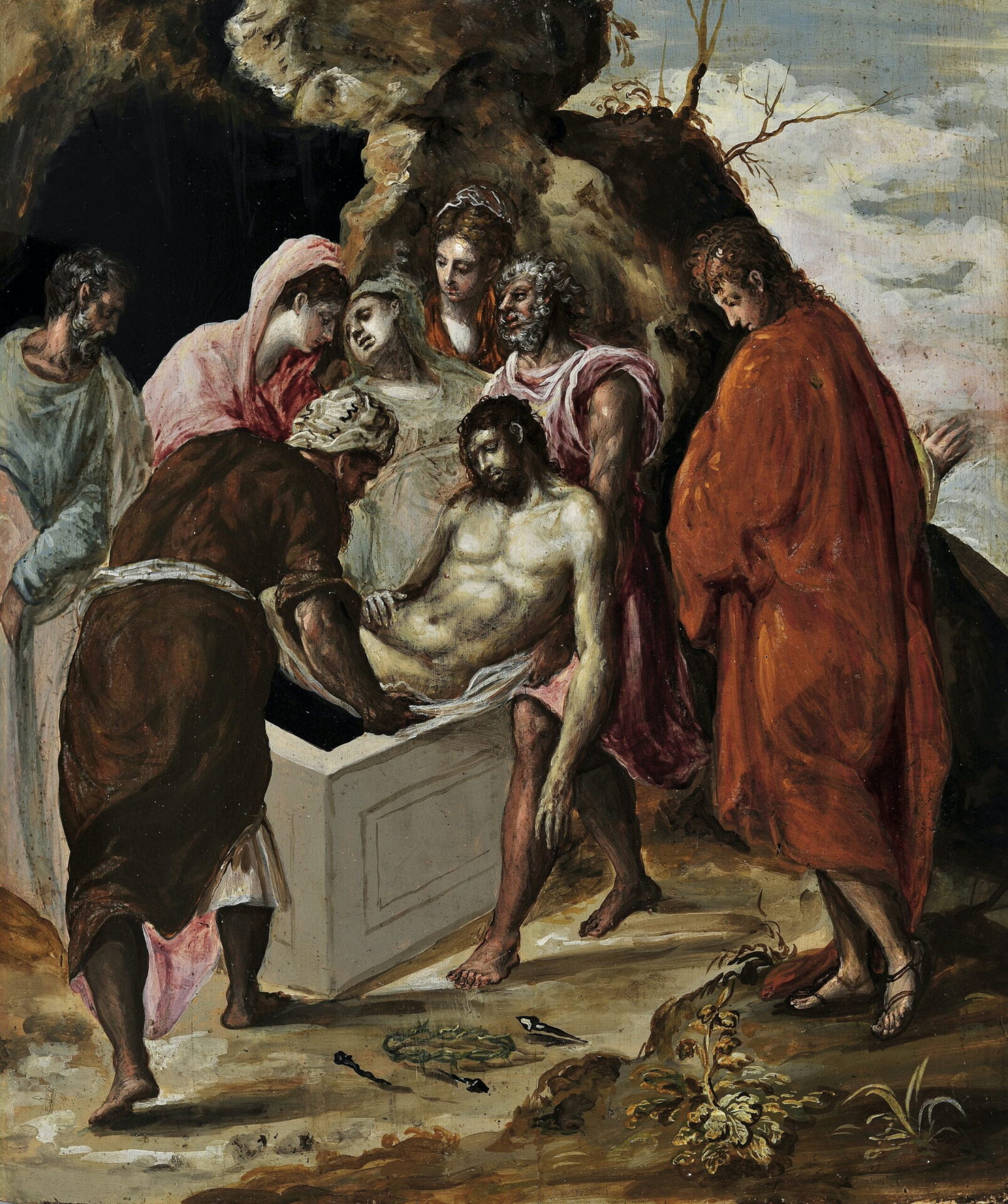In Hinduism, Jesus is often referred to as “Isa” or “Yeshu.” While Jesus is primarily recognized as a central figure in Christianity, he is also acknowledged in Hindu scriptures and cultures. The belief in Jesus as a divine or enlightened being is not exclusive to Christianity, as Hinduism celebrates and respects various religious figures from different traditions. This article explores the names and perspectives associated with Jesus in Hinduism, shedding light on the harmonious coexistence of multiple religious beliefs.

Table of Contents
Concept of divinity in Hinduism
Hinduism is a religion that embraces a pantheistic understanding of divinity. Unlike other major religions that often have a singular concept of a supreme deity, Hinduism recognizes the existence of multiple gods and goddesses. The belief is that these deities represent different aspects of the divine, and devotees can choose to worship the god or goddess that resonates with them the most. This polytheistic nature of Hinduism allows for a diverse range of religious experiences and rituals.
Understanding the pantheistic nature of Hinduism
Pantheism is at the core of Hinduism. It is the belief that everything in the universe, including the gods and goddesses, is an embodiment or expression of the divine. In Hindu philosophy, the divine is seen as an all-encompassing, supreme consciousness that permeates every aspect of existence. This understanding contrasts with monotheistic religions, where a single divine entity is worshipped.
Polytheistic aspects and the multitude of gods in Hinduism
Hinduism boasts a rich and expansive pantheon, with countless gods and goddesses having unique qualities and attributes. Some of the most widely worshipped deities in Hinduism include Brahma, the creator; Vishnu, the preserver; Shiva, the destroyer; and Devi, the divine feminine energy. These deities are honored through various forms of worship, rituals, and festivals, reflecting the diverse cultural practices within Hinduism.
Hindu interpretation of divine incarnations and avatars
Within Hinduism, the concept of divine incarnations, known as avatars, is also significant. It is believed that gods and goddesses take on physical forms to restore balance and righteousness in the world. These avatars are seen as expressions of the divine will and serve as intermediaries between the human and divine realms. The most well-known avatars in Hinduism include Lord Rama, Lord Krishna, and Lord Vishnu’s Ten Incarnations (Dashavatara).
The concept of Jesus in Hindu tradition
While Hinduism has a rich tapestry of deities and divine incarnations, the figure of Jesus holds a unique place in Hindu tradition. Although not officially recognized as a Hindu god, Jesus has found a place in Hindu literature, art, and the hearts of many Hindu followers.
Jesus’ representation in Hindu literature
Various Hindu texts make references to Jesus in different contexts. For instance, some Hindu poets and mystics have drawn parallels between Jesus and enlightened sages or avatars in their writings. These references often highlight Jesus’ divine nature, his teachings of love, compassion, and his role as a spiritual guide.
Depiction of Jesus in Hindu art and iconography
In Hindu art, Jesus is sometimes depicted alongside Hindu deities, showcasing the syncretic nature of Indian spirituality. Some paintings and sculptures portray Jesus with Hindu gods and goddesses, reflecting a harmonious coexistence of different spiritual traditions in India.
Community perception of Jesus among Hindu followers
Among Hindu followers, the perception of Jesus varies. Some view Jesus as a spiritual guide or an enlightened being who embodied divine qualities. Others consider Jesus as a manifested form of the divine, similar to the avatars revered in Hinduism. However, it’s important to note that these beliefs and perceptions are not universal among all Hindus, as Hinduism allows for individual interpretations and practices.
Jesus as ‘Ishu’ in Hinduism
In Hinduism, Jesus is often referred to as ‘Ishu.’ This term holds significant meaning and conveys a deeper understanding of Jesus within the Hindu context.
Understanding the term ‘Ishu’
‘Ishu’ is derived from the Sanskrit word ‘Ishvara,’ which means ‘Lord’ or ‘Supreme Being.’ By using ‘Ishu’ to refer to Jesus, Hindu followers acknowledge his divine nature and recognize him as a spiritual authority.
Contextual usage of ‘Ishu’ in Hindu texts
In Hindu texts and scriptures, the term ‘Ishu’ is sometimes used metaphorically to describe divine beings or enlightened individuals. Hindu poets and philosophers have incorporated ‘Ishu’ as a poetic device to signify a higher spiritual state or consciousness. By associating Jesus with ‘Ishu,’ it underscores his divine essence within the Hindu framework.
Comparative study with other religious figures called ‘Ishu’ in Hinduism
It is worth noting that the term ‘Ishu’ is not exclusively used for Jesus in Hinduism. Other religious figures, both historical and mythical, have also been referred to as ‘Ishu’ in different contexts. This shows that ‘Ishu’ is a flexible term that can be attributed to various spiritual beings, each with their unique significance and symbolism.
Jesus as ‘Avatar’
The concept of avatars holds great importance in Hinduism, and some Hindu followers see Jesus as an avatar with divine qualities and a special purpose in the world.
Hindu perspective on the concept of Avatar
According to Hindu philosophy, avatars are divine incarnations that descend to Earth to fulfill a specific divine mission. Avatars are regarded as the manifestations of the ultimate reality or Brahman. These divine beings assume human or non-human forms to guide humanity, restore righteousness, and maintain cosmic order.
Usages referring Jesus as an Avatar
In some Hindu circles, Jesus is revered as an avatar, similar to other highly esteemed incarnations like Lord Rama and Lord Krishna. This perspective recognizes Jesus as a divine messenger who manifested on Earth to impart spiritual wisdom, love, and compassion.
Comparison between Jesus and other Hindu avatars
When comparing Jesus to other Hindu avatars, similarities can be found in their teachings of compassion, self-sacrifice, and their role as spiritual leaders. The profound impact of Jesus’ life and teachings resonates with the narratives of other revered figures in Hinduism, reinforcing the interconnectedness of spiritual wisdom across different traditions.

Jesus in the Bhavishya Purana
The Bhavishya Purana, a Hindu scripture, mentions Jesus in a particular context that has sparked much debate and controversy among scholars and believers.
Mentions of Jesus in Hindu scripture
The Bhavishya Purana contains a section called the Pratisarga Parva, which refers to the future and historical events. In one episode, it mentions a conversation between Jesus and a king named Shalivahana. This narrative presents Jesus as a wise teacher who discusses spiritual concepts with the king.
Interpretation of Jesus’ life based on this Purana
The mentions of Jesus in the Bhavishya Purana have led to different interpretations among scholars and believers. Some view it as evidence of Jesus’ existence and his influence beyond his known historical context. Others approach it with skepticism, considering it as a later interpolation or an allegorical representation rather than a factual account.
Areas of controversy and dispute regarding this interpretation
The inclusion of Jesus in the Bhavishya Purana has been a subject of controversy and dispute. Some argue that the episode was added to the text at a later date, while others believe it to be an authentic account. The different interpretations highlight the complexities and challenges involved when attempting to reconcile religious traditions and historical accounts.
Jesus and Hindu Philosophy
Hindu philosophical ideas have influenced the way Jesus is perceived by some Hindus, revealing interesting parallels between Hindu and Christian thought.
Influence of Hindu philosophical ideas on the perception of Jesus
Hindu philosophy, particularly Vedanta, which espouses the concept of non-dualism, has shaped the understanding of Jesus as a spiritual teacher with divine qualities. The emphasis on the oneness of existence in Hindu philosophy aligns with the teachings of Jesus, which highlight the interconnectedness of all beings and the universal nature of God’s love.
Jesus within the context of Vedanta philosophy
In Vedanta, the ultimate reality, Brahman, is seen as the essence of all existence. Jesus, as a realized being or avatar, is perceived as a manifestation of this divine reality. Within this framework, his teachings and actions are seen as expressions of divine wisdom and love that can guide individuals towards spiritual liberation.
Understanding similarities between Jesus’ teachings and Hindu philosophical concepts
The moral teachings of Jesus, such as love, compassion, forgiveness, and selflessness, find resonance with the ethical principles emphasized in Hindu philosophy. Both Hindu and Christian traditions share a common understanding of the importance of leading a virtuous life and the transformative power of divine grace.

Jesus and the Concept of Karma and Dharma
Karma and Dharma are central ideas in Hinduism, and some Hindus connect these principles with Jesus’ teachings and his role in salvation.
A brief introduction to Karma and Dharma
Karma refers to the law of cause and effect, where one’s actions have consequences that will shape future experiences. Dharma, on the other hand, encompasses one’s duty, righteousness, and moral obligations towards self, society, and the divine. Together, these principles guide individuals towards leading a righteous life while navigating the cycle of birth and rebirth.
How Jesus fits into these key Hindu concepts
Some Hindus interpret Jesus’ teachings as aligning with the ideas of Karma and Dharma. Jesus’ emphasis on leading a righteous life, doing good deeds, and his teachings on love and forgiveness can be seen as guiding individuals towards positive karma and fulfilling their dharma. Furthermore, some Hindus believe that Jesus’ sacrificial death on the cross can liberate individuals from karmic bondage and lead to salvation.
An exploration of Jesus’ teachings and these Hindu principles
An exploration of Jesus’ teachings reveals connections to the concepts of Karma and Dharma. His emphasis on personal responsibility, ethical conduct, and the transformative power of love and forgiveness resonates with the Hindu understanding of karma and dharma. These principles can serve as guides for individuals seeking spiritual growth and liberation.
Official Hindu Perspective on Jesus
The official perspective of Hindu leaders, scholars, and organizations on Jesus varies, reflecting the diversity of beliefs within Hinduism.
Views of prominent Hindu leaders and scholars on Jesus
Prominent Hindu leaders and scholars have expressed a range of views on Jesus. Some admire his teachings and consider him a great spiritual teacher, while others may emphasize his role as a divine avatar. There are also those who approach his teachings with caution or view him within the broader context of religious pluralism.
Hindu organizations’ statements on Jesus
Various Hindu organizations have offered official statements on Jesus. Some acknowledge his significance as a spiritual figure, promote interfaith dialogue, and advocate for mutual respect and understanding among different religious traditions. These statements reflect a growing recognition of the value of religious diversity and the need for peaceful coexistence.
The evolution of Hindu perspective on Jesus over time
The perspective of Hinduism as a whole on Jesus has evolved over time. As societal attitudes shift and interfaith dialogue becomes more prevalent, there has been a gradual change in how Hindus approach and engage with the figure of Jesus. This evolving perspective is indicative of the dynamic nature of religious traditions and their capacity to adapt to changing cultural and social contexts.
Jesus in Hindu Popular Culture
The presence of Jesus in Hindu popular culture is evident in various forms of artistic expression and cultural practices.
Portrayal of Jesus in Indian cinema, literature, and art
Indian cinema, literature, and art have depicted Jesus in diverse ways, reflecting the cross-cultural influences and syncretism prevalent in India. From historical dramas to contemporary narratives, Jesus has been portrayed as a figure of inspiration, compassion, and spiritual wisdom, resonating with audiences from different religious backgrounds.
Popular songs and hymns referencing Jesus in a Hindu context
In devotional music and hymns, Jesus is sometimes referred to in a Hindu context, incorporating his name and attributes into Hindu devotional traditions and practices. These songs celebrate his universal message of love, peace, and spiritual awakening, bridging the gap between different spiritual traditions.
The role of political and social factors in shaping the image of Jesus in Hindu culture
The image of Jesus in Hindu culture can also be shaped by political and social factors. Historical events, colonization, and the interactions between different religious communities can influence the way Jesus is perceived and portrayed. These external influences add layers of complexity to the representation of Jesus in Hindu popular culture.
Jesus in Interfaith Dialogue
The figure of Jesus plays a significant role in interfaith dialogue, fostering conversations between Hinduism and Christianity.
Role of Jesus in the discourse between Hinduism and Christianity
As Hinduism and Christianity come into contact through interfaith dialogue, Jesus serves as an important common reference point for discussions on spirituality, ethics, and religious diversity. His teachings and his life story offer opportunities for shared reflections and a deeper understanding of the human quest for meaning and transcendence.
Common ground and disagreements in understanding Jesus
Interfaith dialogue between Hinduism and Christianity reveals both areas of common ground and points of disagreement in understanding Jesus. While both traditions recognize Jesus’ significance, differences in theological and doctrinal perspectives can shape interpretations of his teachings and his role in salvation.
Impact of such dialogue on Hindu-Christian relations
Engaging in interfaith dialogue can foster mutual respect, dispel stereotypes, and promote peaceful coexistence between Hindus and Christians. By deepening their understanding of each other’s beliefs and practices, Hindus and Christians can cultivate a spirit of dialogue and cooperation, contributing to stronger interfaith relations and fostering a climate of religious harmony.